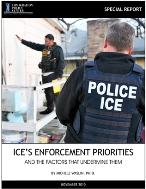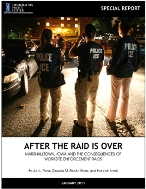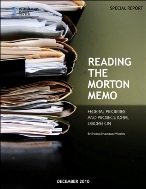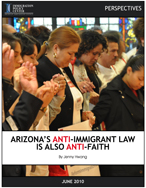 As part of its strategy to gain support for comprehensive immigration reform, the administration has continually touted its enforcement accomplishments. In fact, over the last two years, the Obama administration has committed itself to a full-court press to demonstrate how committed the administration is to removing criminals and others who remain in the country without proper documentation. They have continued to use the enforcement programs of the previous administration, including partnering with state and local law enforcement agencies to identify, detain, and deport immigrants. However, in doing so, they have lost the ability to fully control their own enforcement priorities and enforcement outcomes, and the results have demonstrated that the state and local partners are not necessarily committed to the same priorities.
As part of its strategy to gain support for comprehensive immigration reform, the administration has continually touted its enforcement accomplishments. In fact, over the last two years, the Obama administration has committed itself to a full-court press to demonstrate how committed the administration is to removing criminals and others who remain in the country without proper documentation. They have continued to use the enforcement programs of the previous administration, including partnering with state and local law enforcement agencies to identify, detain, and deport immigrants. However, in doing so, they have lost the ability to fully control their own enforcement priorities and enforcement outcomes, and the results have demonstrated that the state and local partners are not necessarily committed to the same priorities.
At an October 6, 2010, press conference, Secretary of Homeland Security Janet Napolitano announced that the Department of Homeland Security (DHS) had removed more than 392,000 individuals in Fiscal Year (FY) 2010, and presented other “record-breaking immigration enforcement statistics achieved under the Obama administration.” In addition to record-breaking overall numbers, Napolitano also announced the “unprecedented numbers of convicted criminal alien removals” in FY 2010. Of the 392,000 removals in FY 2010, more than 195,000 were classified as “convicted criminal aliens,” which was 81,000 more criminal removals than in FY 2008.Read more...
Published On: Tue, Nov 09, 2010 | Download File







